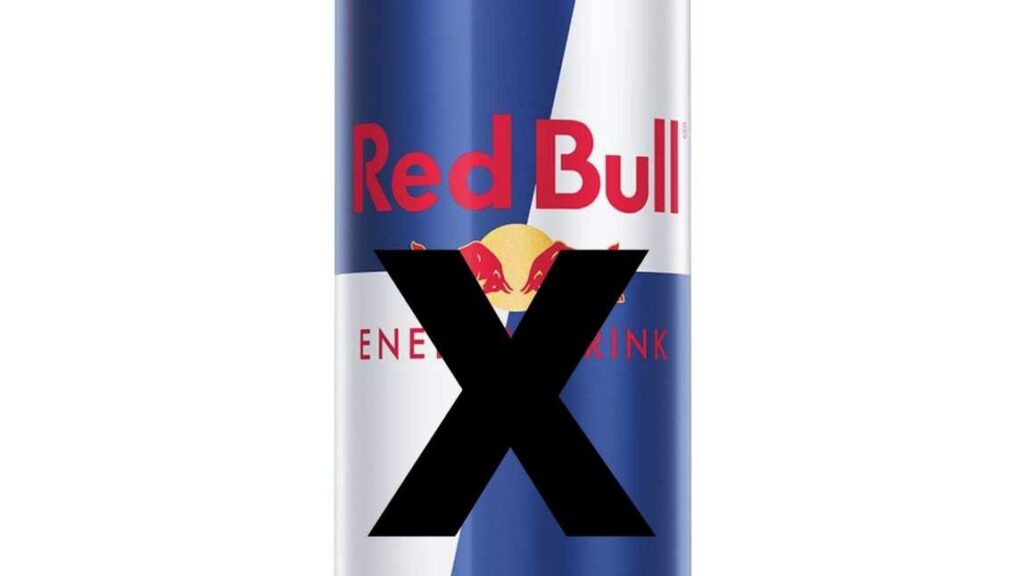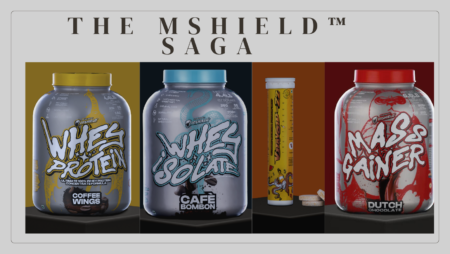Red Bull is an energy drink which is manufactured by the Austria Red Bull GmbH company. It is widely famous in the world and is believed to provide you with instant energy. Red Bull has a record of selling over 650 crores can every year. Be it a party, clubbing, or getting energy Red Bull is the most preferred energy drink worldwide.
“Red Bull gives you wings” is the marketing slogan of the energy drink. Yes, it stands true to its slogan but Is it actually good for health? Does it have side effects if consumed for a longer period or regularly? Does it have any harmful effect on your health? This blog will answer all your queries related to whether Red Bull is good for your health or not. So, let’s explore the secret of Red Bull.
Table of Contents
What happens when you drink Red Bull?
Red Bull, being an energy drink makes your body and mind alert, which results in increased performance so that you can work hard and for a longer period of time.
Ingredients in Red Bull
The various ingredients in Red Bull are as follows
- Water
- Sucrose
- Glucose
- Acidulant
- Carbon dioxide
- Taurine
- Acidity regulators
- Flavors
- Color
- Caffeine
- Vitamins ( Niacin, B6, B2, B12 )
Now let’s break down the ingredients present in Red Bull and determine whether the ingredients present in Red Bull are safe for our health or not.
Water
The first ingredient that is found in Red Bull is water. This is the normal water that keeps you hydrated. Hydration leads to good performances.
Sucrose
Sucrose is the normal sugar that we use in our day-to-day life. But Red Bull consists of a lot of sugar. The 250 ml pack of Red Bull consists of 30g or 6 tablespoons of sugar. 30g sugar is considered way too much but if you are an athlete this amount of sugar can be considered safe, as the sugar gets metabolized if you are into high physical activities. But if you are only consuming Red Bull for developing mental alertness the sugar may not get metabolized and might lead to several lifestyle disorders which includes
- Diabetes
- Hypertension
- Obesity
Glucose
Glucose is added in Red Bull to provide instant energy. But the amount of glucose used in this energy drink is not mentioned in the packaging.
Acidulant
Acidulants also known as acid regulators help in maintaining the pH of the product. The acidulant used in Red Bull is citric acid which is not at all harmful to your health.
Carbon dioxide
Carbon dioxide acts as the fizz in this energy drink. Like other carbonated beverages, carbon dioxide is found in Red Bull because
- It reduces the growth of bacteria in the drink
- Increases the shelf-life of the product
- Maintain the PH value
- It is not at all harmful for the health
The burp that you witness after consuming any carbonated beverages is because of the presence of carbon dioxide in them.
Taurine
The next ingredient that is present in Red Bull is taurine. Taurine is a type of amino acid that is found in different parts of our body (eye, brain, heart, muscles). It plays a major role in regulating our normal metabolism. But the efficiency of taurine in Red Bull is still unknown.
The taurine used in Red Bull is 1 gm and the safe limit of taurine is 2gm. Taurine is not harmful to our health and Red Bull also follows the safe limit of taurine.
Acidity regulators
Red Bull contains Sodium Bicarbonate and Magnesium carbonate as acidity regulators. Sodium bicarbonate helps to increase your BP whereas magnesium carbonate helps in decreasing your BP. As a result presence of both acts as a balancing factor in Red Bull.
Flavors
Red Bull contains some artificial and natural flavors which are not clearly mentioned on the packaging.
Color
The color present in Red Bull is Caramel Color 150d. This color consists of 4-Methylimidazole which increases the risk of developing cancer.
Caffeine
The presence of caffeine in Red Bull makes it different from other drinks. Caffeine is a natural stimulator that basically stimulates your brain and cures restlessness so that you can stay awake for a longer time and work efficiently. The amount of caffeine present in Red Bull (75mg) is equivalent to the caffeine present in 1 cup of coffee. So, if you really want mental alertness, then I would suggest you go for a coffee cup instead of Red Bull, as the sugar content in Red Bull is way too much.
Vitamins
Red Bull contains Niacin, Vitamin B6, Vitamin B2, Vitamin B12. These B-complex vitamins act as coenzymes and check the availability of energy in your body. Sometimes, if there is a lack of B complex vitamins in the body you might feel drenched down even though you have energy left in your body. So, these vitamins present in Red Bull fulfill the lack of B-complex vitamins in your body.
So after breaking down the ingredients present in Red Bull, I do not find anything special in Red Bull that you cannot get in your daily life.
Red Bull : Nutritional Information
100 ml Red Bull contains the following nutrients
| Nutrients | Amount |
| Energy | 45Kcal |
| Protein | 0g |
| Carbohydrate | 11g |
| Fat | 0g |
| Taurine | 400mg |
| Caffeine | 30mg |
| Niacin | 2.4mg |
| Vitamin B6 | 0.4mg |
| Vitamin B2 | 0.2mg |
| Vitamin B12 | 0.2µg |
- 100 ml of Red Bull gives you 45Kcal of energy, which is good actually. The calories are entirely coming from glucose and sugar. So it can also be regarded as empty-calorie junk food.
- No fats or protein are found in Red Bull.
- The amount of vitamins present in Red Bull almost fulfills 50% requirements, which is actually good.
Reasons why Red Bull may not be your best choice
- In cases of increasing your mental alertness, you can have a cup of coffee which is much cheaper than Red Bull.
- Sugar and glucose energize you, provide you with mental awareness, and keeps you refreshed. But if you want to consume Red Bull just for this sugar and glucose don’t you think it’s way too expensive for that?
- Red Bull contains added colors but does not mention the name in its packaging. Most added colors are harmful to health if taken over a long period of time.
Why is Red Bull still better than other beverages?
If we are comparing Red Bull to other beverages, anyhow Red Bull can be considered better. At least it contains some extra nutrients compared to other beverages.
Is Red Bull and Cola the same?
More or less Red Bull and Cola can be considered the same. But the presence of extra nutrients ( B-Complex, taurine, caffeine) makes Red Bull unique and different from Cola. It energizes your body and increases your mental awareness.
But if you compare the price of a normal cola and Red Bull, there is a huge difference. A bottle of Cola will cost you around Rs 30 whereas Red Bull will cost you around Rs 110.
Who should not take Red Bull?
- Children under 12 years of age are not recommended to consume Red Bull.
- Pregnant women should stay away from Red Bull.
- Lactating moms should also stay away from Red Bull.
- This product is not for diabetic patients.
- People with liver disorders, kidney disorders, hypertension, and heart-related problems should also stay away from Red Bull.
Can sports persons take Red Bull regularly?
The substances used in Red Bull are quite addictive and may prove to be harmful in the long run for a sportsperson or athlete. For example, if you are playing your first game, taking 1 bottle of Red Bull, and then taking another bottle after another game. This develops an addiction and your intake of Red Bull increases regularly. So, it is not recommended for a sportsperson to take Red Bull regularly.
Is Red Bull safe for bodybuilders?
If you are trying to make your muscles lean then Red Bull can be a good option as the sugar in Red Bull will help you to do more workouts. But if you are trying to lose fat then drinking Red Bull won’t help you. The sugar content takes time to get metabolized and is not at all considered good for fat loss.
Conclusion
So now it’s entirely your decision whether to go for such an expensive energy drink just for the sake of increasing your mental alertness and energy, or you should prefer more economical products like coffee, tea, cola for increasing your mental alertness.
ALSO READ
10 Best Baby Massage Oil in India
Are Sunfeast Yipee Noodles safe to eat? (for kids and pregnant women)
Here’s What No One Tells You About The Various Side Effects Of Ajwain





